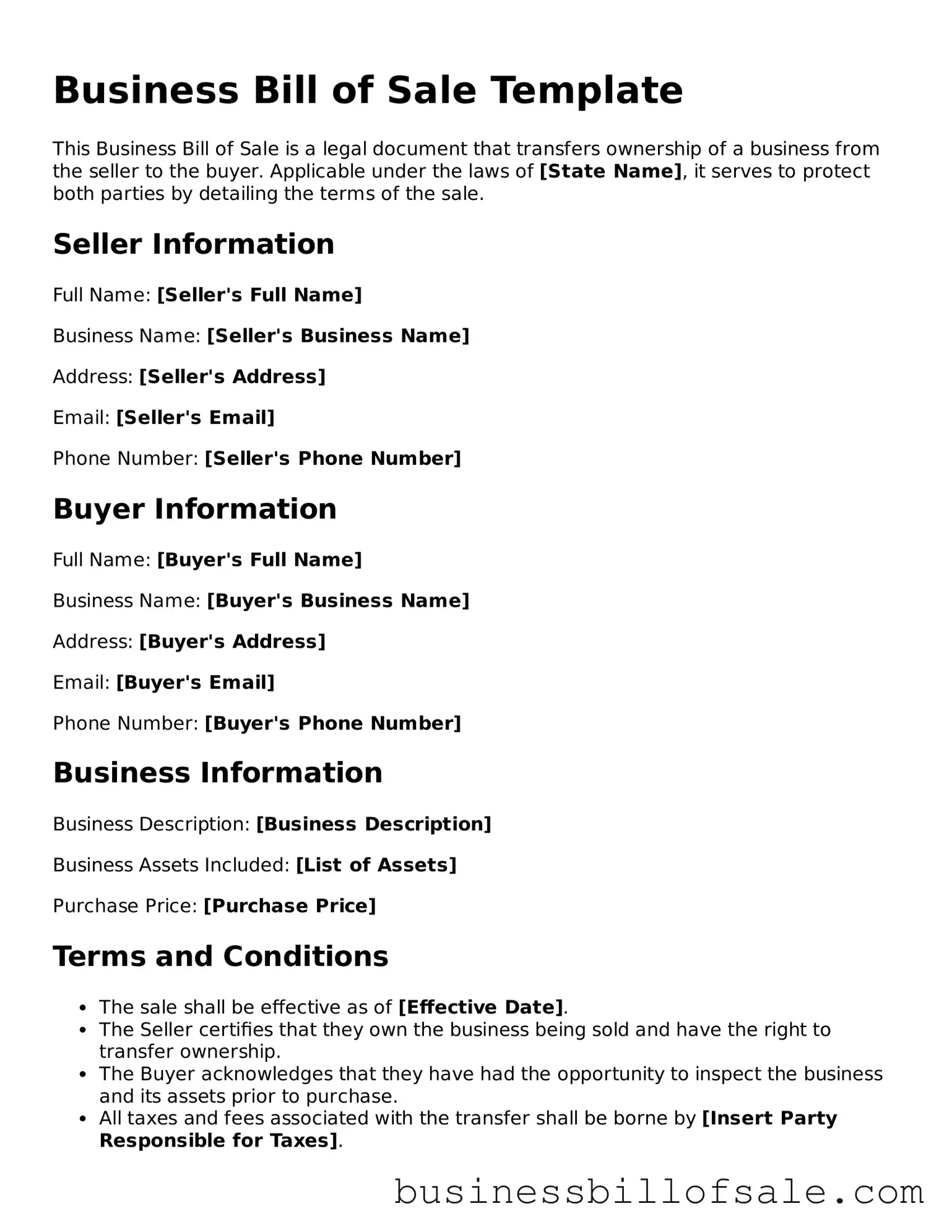Business Bill of Sale Template
This Business Bill of Sale is a legal document that transfers ownership of a business from the seller to the buyer. Applicable under the laws of [State Name], it serves to protect both parties by detailing the terms of the sale.
Seller Information
Full Name: [Seller's Full Name]
Business Name: [Seller's Business Name]
Address: [Seller's Address]
Email: [Seller's Email]
Phone Number: [Seller's Phone Number]
Buyer Information
Full Name: [Buyer's Full Name]
Business Name: [Buyer's Business Name]
Address: [Buyer's Address]
Email: [Buyer's Email]
Phone Number: [Buyer's Phone Number]
Business Information
Business Description: [Business Description]
Business Assets Included: [List of Assets]
Purchase Price: [Purchase Price]
Terms and Conditions
- The sale shall be effective as of [Effective Date].
- The Seller certifies that they own the business being sold and have the right to transfer ownership.
- The Buyer acknowledges that they have had the opportunity to inspect the business and its assets prior to purchase.
- All taxes and fees associated with the transfer shall be borne by [Insert Party Responsible for Taxes].
Signatures
By signing below, the Seller and Buyer agree to the terms of this Business Bill of Sale.
Seller's Signature: _______________________ Date: _______________
Buyer's Signature: _______________________ Date: _______________
This document may be governed by applicable laws in [State Name]. It is recommended that both parties consult with legal counsel before signing.
